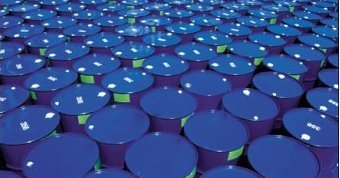The yearly ministerial meetings between EU and OPEC countries have been cross-checked with round table debates and summits, the latest one coming up on the 24th June. Next to that there are constant and numerous events within OPEC framework, or in line with OPEC-Russia, OPEC-China etc. activities, to which the EU pays a certain amount of attention.
Developing a cooperation
There is little to say about EU and OPEC dialogue apart from the fact that it springs out of fear of oil shocks and economic crisis stirred by those. EU-OPEC dialogue comes into the front of the attention especially now when oil prices are skyrocketing, affecting lowest income citizens across Europe and slowing down business results while having the cartel strike windfall profits.
EU-OPEC dialogue comes into the front of the attention affecting lowest income citizens across Europe
However, it is necessary to note that OPEC’s power to manipulate the oil market is very different from what is was in the past (in the 70-ties), with new production capacities appearing in new markets and new oil reserves found along the way (the Mexican Gulf, Russia etc.).
Outstanding issues of the dialogue
At the core of EU – OPEC cooperation there are two groups of outstanding issues. On one hand, the OPEC countries are primarily worried about the long-term stability of demand and in search of new investments into their production capacities. On the other hand, the EU looks for a more stabile and predictable cooperation and a redirection into cleaner technologies. Due to the fact that OPEC countries are dominated with state-run companies that have monopolies over extraction and production, it is less likely that they will easily turn towards market-lead and technologically advanced activities.
It is crucial to recognize that it is also OPEC that strives for a greater security as it is heavily depended on market and investment behavior of the developed countries. It is a relationship with extensive economic and social impacts to both partners. Pressure is constant, either from increasing demand vs. spare production capacities, or from geopolitical instabilities, fluctuation of prices, redirection in policies etc. The core element of the dialogue in question is to secure greater transparency in policies, to exchange political views on the main issues, and to increase the transparency and predictability of the whole supply and demand chain.
However, it is not the developed countries that are driving the demand growth today, but the emerging economies like China and India. This contributes to further instabilities of the oil market and geostrategic reconsideration of possible partnerships.
Assessing future developments
Some concrete ideas that usually come out of the meetings of EU-OPEC dialogue are activities like the joint energy technology centre, conferences and workshops on concrete policy measures, technology developments, investment needs. There are of rare value apart from information exchange and greater transparency – which is in the end at the core of the cooperation nature.
While the supranational level is pulling competences to the EU level, energy is and will remain a stronghold of the national policies for years to come
However, although OPEC is an old structure, EU’s attitude towards such and similar partners or countries has changed a lot in the last few years, with a developing external energy policy of the EU. Another U-turn in EU’s policy making is surely the climate change mitigation policies (structural shift to low-carbon economy) which go hand in hand with an increased security of supply from indigenous sources or simply diversification of suppliers. While the supranational level is pulling competences to the EU level, energy is and will remain a stronghold of the national policies for years to come.
A balance between to two levels will be found sooner or later, with the supranational level probably taking over more environmentally/climate change mitigation oriented policies (as traditionally) putting pressure on the national priorities.
However, the question of security of supply (and possible disruption) can quickly endanger the stability of such a balance within the EU, and this is where such dialogues, although they might seem empty at a point, bring in their value of constant information flow and policy exchange.


Follow the comments: |
|
